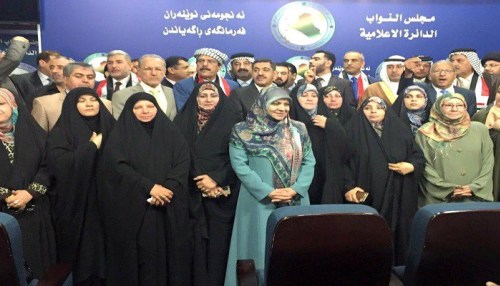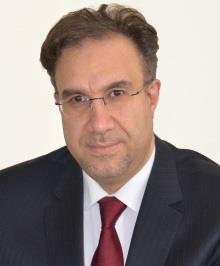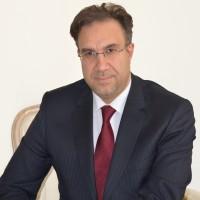Key Take-Away: The political crisis in Iraqi Kurdistan caused by delayed Presidential elections descended into outright political violence on October 8. Regional President Masoud Barzani, the leader of the Kurdish Democratic Party (KDP), has continued to hold office even though his term expired on August 19 and no elections have occurred. Other Iraqi Kurdish political parties, particularly Gorran (Change), the KDP’s main political rival, tried to contest the extension of Barzani’s term and leverage concessions in return for his continuation in office. Popular protests against the government turned violent on October 9 after multi-party talks collapsed the day before. On October 11, the KDP ordered the speaker and other members of the Kurdish parliament from Gorran to leave the regional capital of Arbil, declaring that Gorran was no longer a part of the Kurdistan Regional Government (KRG). Gunmen loyal to the KDP barred a Gorran convoy from entering Arbil. This dangerous maneuver by the KDP to solidify Barzani’s position as regional president has escalated tensions within the KRG and serious political violence may protract. Unless negotiations between the KDP and the opposition parties reaches a meaningful compromise in short order, the KRG could split or collapse as opposition leaders move their operations from the seat of government in Arbil to Suleimaniyah.
The Iraqi Kurdistan Regional Presidency Crisis: June 17 – August 19.
The crisis over the Iraqi Kurdistan Regional Presidency (henceforth “Regional Presidency”) has been long in the making. Regional President and leader of the Kurdistan Democratic Party (KDP) Masoud Barzani’s term expired on August 19. The Regional President is by far the most powerful government official in the KRG, and Barzani has held the position since June 2005. Other political parties, long unhappy with Barzani’s tenure, have heatedly debated whether Barzani is permitted to hold office for another term, as he has technically served two-and-a-half terms and the legal debate over how many terms Barzani is permitted to serve is complex. The opposition, consisting of the Patriotic Union of Kurdistan (PUK), Gorran (Change), the Kurdistan Islamic Union (KIU), and the Islamic Group, attempted to leverage the expiration date to extract concessions from Barzani that would constrict Barzani’s powers and increase the powers of the regional parliament. In particular, the opposition sought to convert the Kurdistan Regional Government (KRG) system from a presidential system to a parliamentary one. This change would favor the opposition, which holds 58 seats out of 111 and a simple majority, whereas the KDP holds only 38 seats, bolstered by the 10 seats allotted to Turkmen and Christian parties who usually side with the KDP.
Barzani refused to relinquish power by making concessions. The head of the Kurdistan Independent High Electoral Commission (K-IHEC), KDP member Handrin Muhammad Saleh, announced on June 17 that the Iraqi Kurdistan region would not hold elections to select a new regional president, citing a lack of time to prepare and budgetary constraints. On the same day, Gorran presented a proposal to transform the government system, with the other opposition parties following suit on June 18. The opposition parties presented a series of compromises after August 4 and suggested that Barzani could hold office for an additional two years until the parliamentary elections in 2017 in exchange for converting to a parliamentary system and significantly reducing the regional presidency’s powers, distributing some of them between deputy regional presidents and the parliament. Subsequent proposals by the opposition followed similar lines.
Discussions over how to address the crisis stalled. Barzani steadfastly refused to compromise, while the opposition refused to cave into Barzani. Mediation by Iranian officials, including the Assistant Secretary General of the Iranian National Security Council on July 29, made no impact. Even a visit by Iranian Revolutionary Guards Corps (IRGC)-Quds Force commander Qassim Suleimani on July 26 to the PUK, which has historically been close to Iran, did not sway the opposition, which insisted that the regional presidency crisis was a strictly Kurdish internal issue. Barzani leveraged KDP control over the electoral commission to dissuade the opposition and gained a ruling in his favor from the KDP-dominated Shura Council, an advisory body within the Kurdish Justice Ministry tasked with resolving administrative disputes. The Shura Council stated on August 17 that Barzani should remain in office for two years while retaining his full powers. However, the Gorran speaker of parliament Yusuf Muhammad Sadiq promptly dismissed the decision, pointing out that the Shura Council’s ruling was not legally binding.
Mediation by the U.S. and British Ambassadors to Iraq and the UN Special Envoy to Iraq appeared to have laid the groundwork between the KDP and the four opposition parties to extend discussions beyond the August 19 expiration date. The parties also agreed to delay an emergency session of parliament scheduled for later that day to vote on an amendment to the law governing the powers of the regional presidency. However, Gorran calculated that it could use the opposition’s majority in the parliament to rush an amendment through the legislative process at the last minute. The Gorran speaker of parliament called the emergency session, citing that there had been no formal request to delay it. Gorran’s plan backfired badly, as the KDP boycotted the session and only 53 parliamentarians showed up for the vote, falling short of the 56 parliamentarians required for quorum; five members of the KIU refused to attend the session, with one member suspending his membership in parliament on the grounds that solving the crisis required a consensus agreement between all political parties, including the KDP.
The Crisis Turns Violent: October 8 – October 9.
The five parties, having failed to reach an agreement before the August 19 deadline, began a series of meetings to discuss how to resolve the regional presidency crisis. The ninth round of talks between the five parties broke down on October 8, prompting the PUK to call for the regional presidency crisis to be resolved in the parliament and not among the political parties, signaling the end of the opposition’s patience with negotiations.
The crisis escalated unexpectedly when a protest by teachers over delayed salaries and the ongoing political crisis turned violent in Qala Diza, in northern Suleimaniyah. On October 9, the demonstrators clashed with security forces, leaving two protesters dead and 18 wounded. Other towns in Suleimaniyah province, including Kalar, Halabja, Karmiyan, and Suleimaniyah city, as well as Koya in Arbil province, continued to witness large protests by teachers against delayed salaries.
Political Violence: October 9 – October 11.
Although most demonstrations have remained peaceful, some witnessed significant political violence. A series of attacks on political party interests across Iraqi Kurdistan demonstrate that the opposition has initiated violence itself or used party-affiliated thugs to coax peaceful demonstrators into initiating violence in order to escalate the crisis. Demonstrators in Sayid Sadiq in eastern Suleimaniyah province clashed with security forces on October 11, injuring an unknown number of demonstrators and KDP supporters. Demonstrators also attacked KDP headquarters buildings in Suleimaniyah. The KDP reported that two KDP members were killed and nine others wounded in the attack. KDP facilities in Kalar, Sharzur, Zarayin, Qala Diza, and Halabja were also attacked.
Both the KDP and the opposition have targeted media outlets in a bid to dominate the narrative of the demonstrations. Anonymous witnesses stated that an “armed group” first attacked the office of Rudaw network, a KDP-affiliated channel, in Suleimaniyah, firing on the office but causing no casualties. Unidentified assailants also severely beat journalists from at least five different media outlets covering the October 10 Suleimaniyah protests. The targeted violence indicates that opposition elements were present at the Suleimaniyah demonstration, hijacking the momentum of a largely-peaceful movement and attempting to maximize the chaos for political gain. KDP-dominated Asayish internal security forces closed the offices of the Gorran-affiliated KNN media outlet in Arbil, Soran, and Dohuk, and deported KNN and the independent NRT-TV media outlet employees to Suleimaniyah. NRT-TV claimed that security forces kidnapped its employees in Dohuk and Arbil, but they were later released, and its offices were reopened on October 12.
The KDP and Gorran have dramatically escalated their rhetorical attacks on each other. The outburst of violence and inter-party conflict prompted the PUK, the KIU, and Gorran to call for non-violence and for an emergency meeting of the political parties to prevent the situation from spiraling out of control. Although the KDP called for calm, it held Gorran leader Nechirvan Mustafa responsible for the unrest. The KDP also blamed the PUK for not protecting KDP headquarters sites, though the bulk of their ire has been directed at Gorran. The KDP stated that the demonstrations were not popular and spontaneous, and that attacks on its headquarters buildings “served the interests of the enemies of the Kurds.” Gorran in turn and accused the KDP of using “the language of the civil war years” and disrupting the work of the Kurdistan parliament. A Gorran Twitter account also stated that gunmen carrying KDP banners attacked the Gorran headquarters in Arbil with small arms and mortar fire. The Arbil police directorate denied the unconfirmed report and stated that the Gorran headquarters had never been attacked.
The KDP Kicks Gorran out of Government: October 11.
Amd numerous reports of attacks on KDP headquarters buildings, the KDP used its control over Arbil to oust Gorran physically from government. On October 11, the office of the speaker of parliament, a senior member of Gorran, announced that the five parties had agreed to suspend the October 12 parliamentary session scheduled to discuss the crisis. Shortly thereafter, Gorran stated that the political office of the KDP ordered Gorran parliamentarians, ministers and Gorran speaker Sadiq to leave Arbil and return to Suleimaniyah. Sadiq later claimed that a security force prevented Sadiq and Gorran parliamentarians from entering Arbil province at a checkpoint in Altun Kubri, a town on the border of Arbil and PUK-dominated Kirkuk provinces. A video from the encounter alleges that security forces loyal to the KDP harassed the Gorran convoy, breaking several windows of cars. The head of KDP External Relations and a member of the KDP leadership council, Hayman Hurami, also announced that Gorran ministers were no longer a part of the KRG.
The KDP’s expulsion of senior Gorran members from Arbil – a unilateral removal of the leadership of the KRG’s second largest electoral bloc –effectively removes the opposition’s ability to challenge the KDP in parliament by physically keeping the speaker of parliament out of the parliament building. Gorran denounced the move as a coup and an attempt by the KDP to paralyze the work of the parliament; Gorran’s KIU allies denounced the move as a mistake that would cause “fear and chaos” while a senior PUK official mirrored Goran’s description of the move as a coup. At the time of writing, Sadiq, Gorran parliamentarians, and Gorran’s ministers were in Suleimaniyah.
Next Steps
If the political crisis protracts for much longer, it will exacerbate longstanding structural problems within the KRG. The Kurdish parliament has failed to pass reforms aimed at combating corruption and improving government performance, a priority for PM Haidar al-Abadi and the Council of Representatives (CoR). Falling oil prices and budget shortfalls are part of a larger state of economic malaise that will be harder to address without consensus in government, and the government employees who took to the streets on October 9 will continue demonstrating. With Gorran members physically barred from entering Arbil, an agreement has become increasingly unlikely.
There are several active drivers that could help push the KRG into returning to negotiations. For one, discontent with the Iraqi Kurdish political situation is widespread. Teachers, who are at the heart of the protest movement, have not been paid for three months, nor have many members of the Peshmerga and other government employees. While Suleimaniyah province is securely a PUK and Gorran electoral stronghold, demonstrators in Qala Diza, Rania, Binjawin, Kalar, Kifrin, and Halabja attacked party headquarters buildings for Gorran, the PUK, the KDP, the KIU, and the Kurdistan Communist Party, pelting the buildings with stones and forcing them to remove their party flags, hoisting the flag of the KRG instead. In addition, the Peshmerga have refused to partake in party conflict, as the Peshmerga Ministry called for calm and stated that it would not allow attacks on any party or government buildings. Finally, all parties have consistently urged demonstrators to avoid violence, while Gorran’s Suleimaniyah office director has suggested that it is still possible for Barzani and Gorran leader Mustafa to reach an agreement over their political differences.
Other parties that form a parliamentary majority have denounced the KDP’s move to exclude Gorran from the KRG. Yet it is not clear if the KDP will make any move to compromise over the regional presidency. Barzani will not allow the parliament speaker to return if he is convinced that the parliament will attempt to bypass his stalling tactics and pass legislation aimed at reducing the regional president’s powers. If every opposition parliamentarian shows up for the vote, then a boycott by the KDP and its allies would not prevent the law from passing. Sadiq has already suggested that the parliament can hold its session in any city to pass legislation. However, the KDP is more likely to ignore the ruling and denounce it as illegitimate rather than obey the legislature’s ruling, considering that it has steadfastly refused to compromise on the regional presidency issue for months. The current political situation is untenable, with several opposition parties exasperated by the fractured nature of the KRG and the dominance of the KDP in particular. If the two sides fail to reach any sort of compromise, political unrest will continue, and the possibility of rival governments – the regional presidency based in Arbil and the parliament based in Suleimaniyah – will become increasingly likely.
Source: Institute for the Study of War. Posted on Monday, October 12, 2015







Comment here